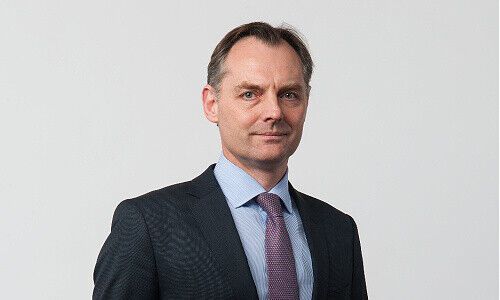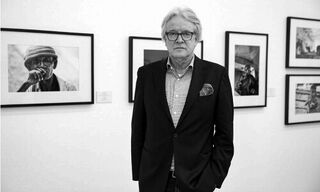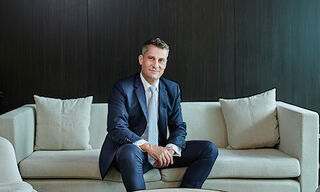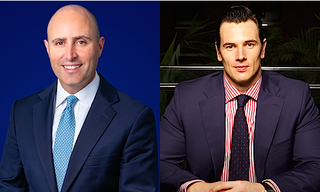Nicolas Faller: «Private Markets Are An Ideal Alternative»
Conditions for private markets, which started to take off in the 1990s, are now better than they have ever been, Nicolas Faller writes in his essay for finews.first.
This article is published on finews.first, a forum for authors specialized in economic and financial topics.
We call them «private» as opposed to the «public» markets in which listed, liquid assets are traded. Private assets are illiquid by their nature and mainly comprise private equity, private debt, real estate, and investments intangible assets and infrastructure.
According to Prequin, the market is currently worth 72 billion euros in Switzerland, and it has historically been supported by various cyclical and secular factors. In particular, these include new regulations introduced after the 2008 financial crisis. For large financial institutions, tougher prudential standards regarding the amount of capital they must hold, and their liquidity ratios have forced them to reduce their corporate finance activities, and companies have therefore had to find other sources of liquidity.
«Bond yields have almost evaporated»
Although tech unicorns account for only part of the huge pool of companies seeking private capital, they provide a good example. Goldman Sachs recently found 392 unicorns, i.e. unlisted companies that have achieved valuations of over $1 billion with the support of private financing alone. In 2006, there were only three.
Bond yields have almost evaporated, prompting investors to take a greater interest in the potential remuneration offered by private markets. As an alternative to large-scale investments in emerging-market debt or high-yield bonds, with the higher volatility they entail, private assets compare well.
Their illiquidity premium – the additional return received by investors in return for being unable to sell their assets immediately – has not diminished. That premium lies between around 2.5 percent for private debt and over 4 percent for private equity, for example these are very attractive numbers in the current era of very low interest rates.
«The global economy does not look capable of withstanding large-scale or rapid rate hikes»
In their quest to achieve the best risk/return profile, investors have spotted this, which has resulted in large amounts of money flowing into private markets. The trend is likely to continue. The global economy does not look capable of withstanding large-scale or rapid rate hikes by central banks.
In addition, governments have taken on a lot of debt to counter the recessionary impact of the pandemic and cannot allow their debt servicing costs to rise too much. Unless inflation surges, therefore, bond yields are set to remain low for a long time to come.
«For private clients, private assets, particularly real estate and infrastructure»
Until now, private markets have mainly been of interest to institutional investors, but their appeal has suddenly grown significantly among private clients. Institutional investors have long sought to harness the potential offered by private markets to boost returns and diversify their portfolios.
Another benefit of these illiquid assets is that they generally do not have to be marked to market, which means that investors do not have to recognize capital losses in their year-end accounts if assets fall temporarily in value.
For private clients, private assets, particularly real estate and infrastructure, offer an alternative to low-yielding bonds, but also real protection against stock market volatility – such as that which appeared at the start of the Covid-19 crisis – and against inflation.
«A recent regulatory change has removed some of that limitation»
Yet private markets still make up a relatively small proportion of asset allocations in Switzerland. Regulations limit alternative investments by Swiss pension institutions. However, a recent regulatory change, prompted by the need for private financing to support the energy transition, has removed some of that limitation.
Following the latest amendments to the Swiss occupational pension plan ordinance (OPP2), pension institutions can now make direct investments in infrastructure, which can account for up to 10 percent of their assets.
This includes energy, mobility, supply-chain and healthcare infrastructure. The aim is to enable pension funds and other pension institutions to invest more money in environmentally sustainable projects in Switzerland or abroad.
«Private markets are set to play a major role in this effort»
As a result, although private equity currently accounts for a third of private market inflows, infrastructure investments are now likely to see the strongest growth. In its most recent report on Europe, Preqin found that assets under management in the infrastructure segment rose 30 percent in 2020.
This increase was driven by considerable expenditure related to the post-Covid recovery and by the transition to a more sustainable and socially just world: the G20 estimates the overall amount of infrastructure investment required at $3,700 billion.
Private markets are set to play a major role in this effort, and the recent regulatory changes mean that they are highly likely to see a sustained increase in investor attention.
Nicolas Faller is the Co-CEO Asset Management at Union Bancaire Privée (UBP).
Previous contributions: Rudi Bogni, Peter Kurer, Rolf Banz, Dieter Ruloff, Werner Vogt, Walter Wittmann, Alfred Mettler, Robert Holzach, Craig Murray, David Zollinger, Arthur Bolliger, Beat Kappeler, Chris Rowe, Stefan Gerlach, Marc Lussy, Nuno Fernandes, Richard Egger, Maurice Pedergnana, Marco Bargel, Steve Hanke, Urs Schoettli, Ursula Finsterwald, Stefan Kreuzkamp, Oliver Bussmann, Michael Benz, Albert Steck, Martin Dahinden, Thomas Fedier, Alfred Mettler, Brigitte Strebel, Mirjam Staub-Bisang, Nicolas Roth, Thorsten Polleit, Kim Iskyan, Stephen Dover, Denise Kenyon-Rouvinez, Christian Dreyer, Kinan Khadam-Al-Jame, Robert Hemmi, Anton Affentranger, Yves Mirabaud, Katharina Bart, Frédéric Papp, Hans-Martin Kraus, Gerard Guerdat, Mario Bassi, Stephen Thariyan, Dan Steinbock, Rino Borini, Bert Flossbach, Michael Hasenstab, Guido Schilling, Werner E. Rutsch, Dorte Bech Vizard, Adriano B. Lucatelli, Katharina Bart, Maya Bhandari, Jean Tirole, Hans Jakob Roth, Marco Martinelli, Thomas Sutter, Tom King, Werner Peyer, Thomas Kupfer, Peter Kurer, Arturo Bris, Frederic Papp, James Syme, Dennis Larsen, Bernd Kramer, Ralph Ebert, Armin Jans, Nicolas Roth, Hans Ulrich Jost, Patrick Hunger, Fabrizio Quirighetti, Claire Shaw, Peter Fanconi, Alex Wolf, Dan Steinbock, Patrick Scheurle, Sandro Occhilupo, Will Ballard, Nicholas Yeo, Claude-Alain Margelisch, Jean-François Hirschel, Jens Pongratz, Samuel Gerber, Philipp Weckherlin, Anne Richards, Antoni Trenchev, Benoit Barbereau, Pascal R. Bersier, Shaul Lifshitz, Klaus Breiner, Ana Botín, Martin Gilbert, Jesper Koll, Ingo Rauser, Carlo Capaul, Claude Baumann, Markus Winkler, Konrad Hummler, Thomas Steinemann, Christina Boeck, Guillaume Compeyron, Miro Zivkovic, Alexander F. Wagner, Eric Heymann, Christoph Sax, Felix Brem, Jochen Moebert, Jacques-Aurélien Marcireau, Ursula Finsterwald, Claudia Kraaz, Michel Longhini, Stefan Blum, Zsolt Kohalmi, Karin M. Klossek, Nicolas Ramelet, Søren Bjønness, Andreas Britt, Gilles Prince, Salman Ahmed, Stephane Monier, and Peter van der Welle, Ken Orchard, Christian Gast, Jeffrey Bohn, Juergen Braunstein, Jeff Voegeli, Fiona Frick, Stefan Schneider, Matthias Hunn, Andreas Vetsch, Fabiana Fedeli, Marionna Wegenstein, Kim Fournais, Carole Millet, Ralph Ebert, Swetha Ramachandran, Brigitte Kaps, Thomas Stucki, Neil Shearing, Claude Baumann, Tom Naratil, Oliver Berger, Robert Sharps, Tobias Mueller, Florian Wicki, Jean Keller, Niels Lan Doky, Karin M. Klossek, Ralph Ebert, Johnny El Hachem, Judith Basad, Katharina Bart, Thorsten Polleit, Bernardo Brunschwiler, Peter Schmid, Karam Hinduja, Zsolt Kohalmi, Raphaël Surber, Santosh Brivio, Mark Urquhart, Olivier Kessler, Bruno Capone, Peter Hody, Lars Jaeger, Andrew Isbester, Florin Baeriswyl, and Michael Bornhaeusser, Agnieszka Walorska, Thomas Mueller, Ebrahim Attarzadeh, Marcel Hostettler, Hui Zhang, Michael Bornhaeusser, Reto Jauch, Angela Agostini, Guy de Blonay, Tatjana Greil Castro, Jean-Baptiste Berthon, Marc Saint John Webb, Dietrich Goenemeyer, Mobeen Tahir, Didier Saint-Georges, Serge Tabachnik, Rolando Grandi, Vega Ibanez, Beat Wittmann, David Folkerts-Landau, Andreas Ita, Teodoro Cocca, Michael Welti, Mihkel Vitsur, Fabrizio Pagani, Roman Balzan, Todd Saligman, Christian Kaelin, Stuart Dunbar, Fernando Fernández, Lars Jaeger, Carina Schaurte, Birte Orth-Freese, Gun Woo, Lamara von Albertini, Philip Adler, Ramon Vogt, Gérard Piasko, Andrea Hoffmann, Niccolò Garzelli, Darren Williams, Benjamin Böhner, Mike Judith, Gregoire Bordier, Jared Cook, Henk Grootveld, and Roman Gaus.






















